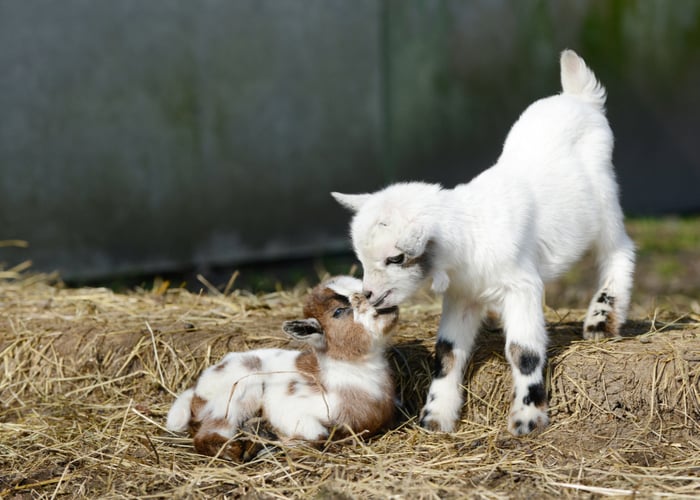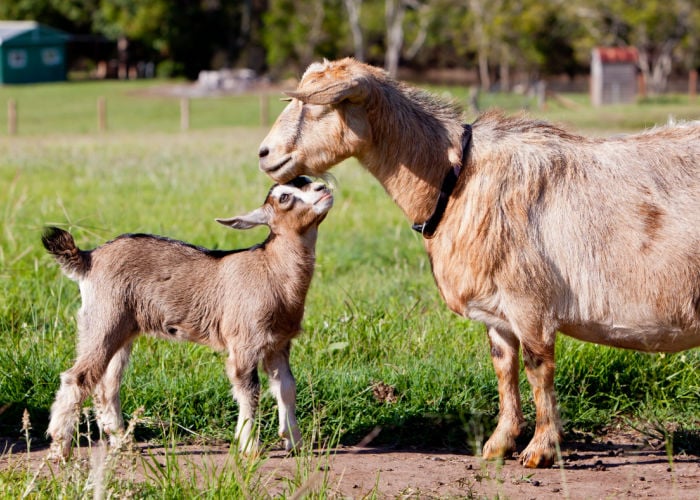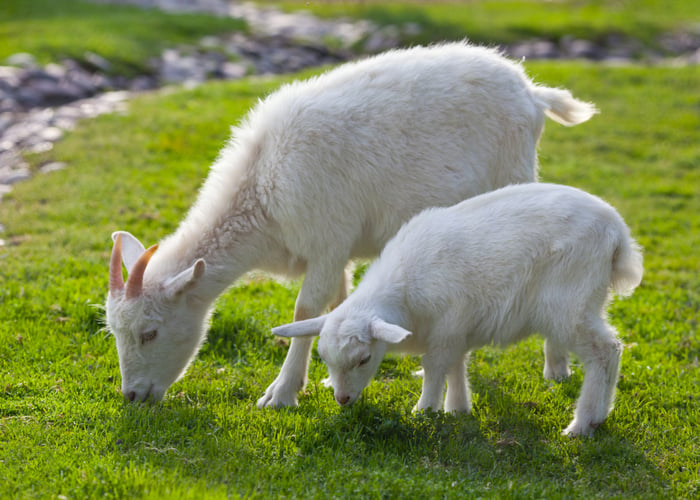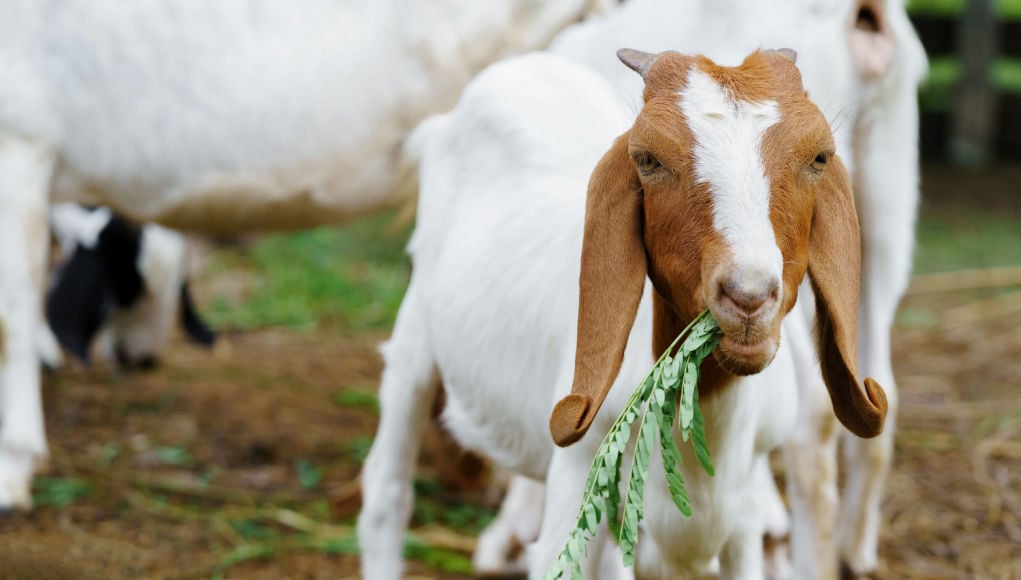Knowing how to care for baby goats can be an incredibly rewarding experience, but it isn’t always as easy as you may assume.
这些顽皮的小动物需要大量的specialized care and attention, so you must be prepared to provide them with all the necessary supplies, energy, and knowledge to keep them happy and healthy.
From creating a safe environment to providing proper nutrition and housing, this blog post will cover everything you need to know about how to properly look after your little furry bundles of joy!
How to Care for Baby Goats
Feeding Your Baby Goat
A baby goat’s primary source of nutrition should come from milk, be it straight from the dam, from a bottle, as a replacer, or even bottled cow milk—milk should be the priority here.
Your baby goat should have colostrum in the first few hours of life, too.
If the baby is left with his or her dam, she will naturally provide that.
If the baby goat is removed from the mother, you will need to supply the colostrum yourself via a bottle.
You can learn all about colostrum, bottle feeding, and weaning baby goats here.
What You Can Feed Baby Goats
From day two of life on, baby goats should have an abundance of roughage like grass and hay in their diet.
On top of that, they can also enjoy between three to four cups of pellets a day, starting around a week old!
Pelleted feed is not necessary, but it can be a beneficial tool for filling in the nutritional gaps that your hay or pasture may be lacking.
If you’re interested in feeding your baby goat some treats, you can do that too!
Ensure the treats are mashed or cut into small pieces so they aren’t a choking hazard for the baby.
- Fruits: watermelon, apples, grapes, bananas, apples, pears, cantaloupe, strawberries, raspberries, blackberries, huckleberries, and honeydew.
- Vegetables: carrots, lettuce, spinach, broccoli, pumpkins, summer and winter squash, celery, potatoes, and green beans.
- Forage/roughage: evergreen needles (pine is best), dry and crunchy leaves (never from fruit trees), thorn bushes, bark (never from fruit trees), some flowers, clover, tree limbs, saplings, handfuls of grass (not grass clippings), and climbing vines such as honeysuckle or kudzu.
- Very small amounts of herbs (less than half of a cup).
What You Shouldn’t Feed Your Baby Goats
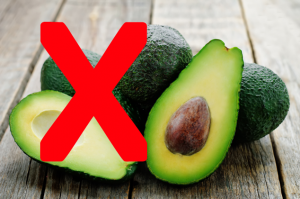
Never feed your baby goat any of the following items:
- Fruit pits (and parts of trees or plants with fruits that have pits). Cherries, avocados, peaches, plums, apricots, and mangoes, plus all parts of the plant, are not safe for goats of any age.
- Milkweed
- Lilacs
- Lily of the Valley (plus many other lily plants)
- Rhubarb leaves
- Holly trees and holly bushes
- Nightshade vegetables
- Garlic
- Onion
- Chocolates
- Foods with added sugar
- Foods with caffeine
- Meat, even in small amounts
- Citrus fruits—these are nontoxic, but they make it difficult for the goat’s rumen to properly digest, so you should generally avoid them, especially when youngsters are concerned.
- Avoid most ornamental trees, flowers, bushes, and grasses.
Sheltering Your Baby Goat
Ensuring your baby goats remain healthy and happy starts with providing them with the right environment!
Keep a space that is warm and dry for them to rest in, give it plenty of bedding such as straw, and discard hay, sawdust, or pine chips.
Change any wet bedding immediately, or add more if you’re using thedeep litter method.
Babies born in milder climates or in the summer need shelter with a roof and a wall. Cooler or windier areas need a roof and two or three sides to the shelter.
Those born in the winter in harsher climates need a roof and four draft-free walls with plenty of bedding to snuggle up in.
For seriously cold areas, consider adding an elevated heat lamp 3 ft above the kid’s head to keep them safe from hypothermia.
There is always a risk of a barn fire when you use heat lamps.
A good way to mitigate the risk is to securely attach the lamp to the ceiling or rafters with a strong chain and then let the light hang over a bedding-free area, like a concrete floor or the inside of a metal 55-gallon barrel.
你可以减少桶的顶部,加做一个small cutout in the side so the baby goat can come and go as they please.
The baby should be able to escape the heat of the heat lamp as needed to prevent discomfort, burns, and dehydration.
Now with that said, heat lamps are generally not needed unless temperatures fall below -20 degrees Fahrenheit or the goat is a brand-new baby with an insufficient winter coat. Be sure to read our guide onhow to keep baby goats warm in the winter without electricity.
How to Keep Baby Goats Safe
One of the best ways to protect your baby goat from lurking predators is to house them in a secure barn or shed with a fenced-in pen or pasture.
Allowing the baby goat to stay with the mother and other members of the herd can also add some protection.
Their watchful eyes make it more difficult for smaller predators to harm the baby goat.
When my goats are born, I typically keep them inside their barn for the first few weeks of life.
It’s cold anyway, plus it keeps them extra secure from predators.
Strong, tight fences, plus fences with strands of electric wire, will do a lot to deter ground predators too.
With the right energizer and a tall enough fence, you can even deter grizzly bears, mountain lions, bobcats, coyotes, and wolves.
Livestock guardian dogs are another fantastic option.
It takes a lot of time and training, but they are great at watching over and protecting your animals.
Lastly,guinea fowlare another strong security measure.
They likely won’t chase off any predators, but they are unbelievably noisy creatures. They sound off their calls when a stranger, human or not, enters their territory.
Sometimes the loud noise is deterrent enough, but at the very least, they will let you know there is trouble on the horizon so you can intervene.
Attention, Handling, and Companionship
How much attention you give to your goats will depend on your lifestyle and intended purpose with your goats.
- Meat goats that are raised strictly to go to the locker will probably need the least amount of handling.
- Mohair goats will need a little more attention; the more you handle them, the easier it will be to shear them semiannually.
- Dairy goats will need a considerable amount of handling because they need to be comfortable enough with you to milk them on a daily basis and be okay with you touching their brand-new kids.
- Show goats will need the most amount of attention. It takes a lot of time and effort to teach them how to walk on a lead, stand still, pick up their feet, and stack or “square up” in the show ring. They will also need more baths and full-body clippings from you too.
Then, of course, if you decide to keep goats strictly as companions, your time together is based on how friendly you want to be with your pet goat.
If you need to form a close relationship with your goat, you may want to consider bottle feeding to solidify your bond together.
你可以either completely remove the baby from the mother to bottle feed exclusively, or you can supplement with a bottle one or two feedings a day. Either option is valid and has pros and cons.
Be aware that it is not wise to bottlefeed bucks that you intend to keep intact.
Billy goats can be dangerous, to begin with. This risk greatly rises when the buck isn’t fearful (or respectful) of people.

Do Baby Goats Need Medicine or Vaccines?
Some operations choose to vaccine, while others opt out. It’s a personal choice for you to make.
Let’s discuss the different kinds of vaccinations and medications available so you can start looking into what you want to do for your baby goat.
Deworming (or “Worming”)
Deworming typically begins at 4-6 weeks old and continues about every month for the first 16 months of life.
After that, the frequency drops to once every 2 or 3 months.
If you’re new to the idea ofdeworming baby goats, be sure to read our guide on that.
We cover everything from schedules to deworming medication, what “extra label” and “off label” means, natural deworming methods, plus what parasitic deworming resistance is and how to combat it.
CDT Vaccine
The CDT vaccine is a must for protecting it against Clostridium perfringens type C + D and tetanus.
Give the first vaccine at 1 month old, then one month later administer the booster shot to ensure proper protection over time.
Cornell Universitysays that all baby goats should be given this vaccine.
Enterotoxemia, also known as overeating disease, is a potentially deadly illness caused by certain clostridial bacteria.
Unsanitary wounds and procedures such as castration or disbudding can trigger the onset of tetanus which is another serious bacterial condition with similar origins.
This vaccine can prevent both.
Other Vaccines to Consider Administering
- Pneumonia
- CLA
- Chlamydia
- Sore Mouth
- Caseous lymphadenitis (CL)
Whether you should give these vaccines to your baby goats depends on your location, if the dam was immunized while pregnant, and the basic operations of your farm or homestead.
Getting in touch with your local veterinarian can really help you narrow down a solid immunization plan and schedule for your goats.
Should You Bottle Feed Your Baby Goat?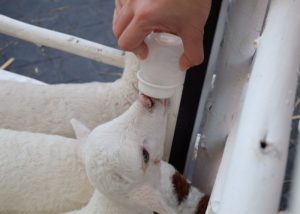
Bottle-feeding baby goats provides an intimate bond and will make them much more friendly towards you, which can be essential for tasks such as milking or shearing.
If you’re raising dairy goats, bottle feeding is advantageous because it means your goat’s dam yields a larger amount of milk (and creates a strong bond with your future milk goat (the kid).
However, there are drawbacks to this method. Sometimes it’s not a good idea to get too attached to the animal, especially if you know you’ll have a hard time letting go for butchering it when it matures.
另外,它可以创建safety hazards if you intend to let the baby goat grow up to be an intact billy goat.
Bucks that were bottle-fed are far more likely to ram and seriously injure or kill their handlers.
Another downside is the time and resources needed to bottle-feed.
You’ll have to have enough room to keep the baby separated from the mother. All the while providing the mother and kids with other playmates so they aren’t anxious or upset.
Buying milk, colostrum, and replacer can add up too. If you’re not willing to take on those costs, you should leave the baby with the dam.
Remember that you’ll need to go feed newborn kids every 2-3 hours in the beginning.
Are you willing to go out to the barn eight times a day or more? Keep that in mind too.
If you work outside the home, this may not be feasible for you.
There is a bit of effort needed to properly wean the baby goat too. We cover that in more depth in this post.
Do Baby Goats Need Friends?
Baby goats absolutely need companions, and humans are generally not suitable companions—they need at least one other goat friend.
Being without a friend leads to anxiety, depression, or general unwellness for the goat.
The kid will be much more likely to escape and run away in search of a herd.
I have heard others say that two goats are fine, and while I have had just two goats at certain times in my life, I have to say that three is far better.
With three goats, you have more freedom, and the goats just seem a lot happier.
You can take one from the pen to milk, shear, wash, walk, or show it, and the other two will contently hang out together in their barn or pen.
If you only have two goats, taking one out of the goat area will stress the other goat out, causing them to bellow, pace, and “yell” for their friend to come back.
This distresses both goats and makes your 101 times with the goat you have out very unpleasant.
It is possible to substitute goat friends for other hooved companions such as sheep, cattle, yaks, or horses. But goats are always the best option.
Goats can form friendships with ducks and chickens too, but feathered friends are not sufficient for replacing their herd mates.
FAQs aboutHow to Care for Baby Goats
Do Baby Goats Like to Be Held?
Baby goats, like adult goats, like elevation.
They want to get as high off of the ground as possible, and so long as they trust you, they will be happy to be picked up and held.
Well-socialized kids will seek out attention and affection from humans. They will enjoy being picked up, carried, petted, and played with.
Pay attention to the habits you’re setting for yourself and your goat.
It’s cute when your fifteen-pound kid tries to jump in your arms. It’s a lot less cute when they’re fully grown and more than 200 pounds.
If you’ve got a large breed, be careful that you’re not setting yourself and your goat up for failure in the future.
Did you know that Boer Goats can weigh 300 pounds at full maturity?Here are the largest goat breeds.
How Can I Play With Baby Goats?
Play is anything that you and your baby goat enjoy doing together.
You can go for walks with your baby goat, letting them hop on and off obstacles on your stroll.
Take a dodgeball or yoga ball into the pen and kick it to each other (expect the baby to try to stand on it).
You can take your kid to a playset and let them climb, slide, and explore it (not recommended if there are human kids nearby).
You can also resume your normal outdoor activities and let your baby goat tag along.
They would love to hang out with you as you pull weeds, trim limbs in your backyard, repair fence, or even do yoga in your yard.
How Long Do Baby Goats Need Milk?
Baby goats need milk for at least the first month of their life, but it is undeniably more beneficial to give them milk for longer than that.
It’s best to wait until the kid is 2.5 to 3 times heavier than their initial birth weight before beginning the weaning process.
What Do Newborn Baby Goats Need?
Newborn baby goats need their mother, or a human caregiver with a bottle, to feed them eight times a day.
They also need free access to fresh, clean water, a dry shelter, protection from predators, and a fence to keep them confined and secure.
Baby goats also need companionship, preferably with their mother, other does, or fellow kids.

How to Care for Baby Goats: Final Thoughts
In conclusion, baby goats require careful attention and care to stay healthy and happy.
Proper nutrition is vital for their well-being; whether you choose to leave them with the dam or bottlefeed is up to you.
Beyond that, you need to have a good grasp on feed nutritional values and weaning schedules and know when to deworm and vaccinate your new baby goat.
It’s also important to create a safe environment for baby goats. Provide them with proper shelter and companionship that can help build lasting bonds for years to come.
Lastly, playing with your goat should be a regular part of their life, whether it’s picking them up or brushing them, so they get used to being handled regularly.
All of these tips will help ensure you have the happiest, healthiest baby goats possible.
